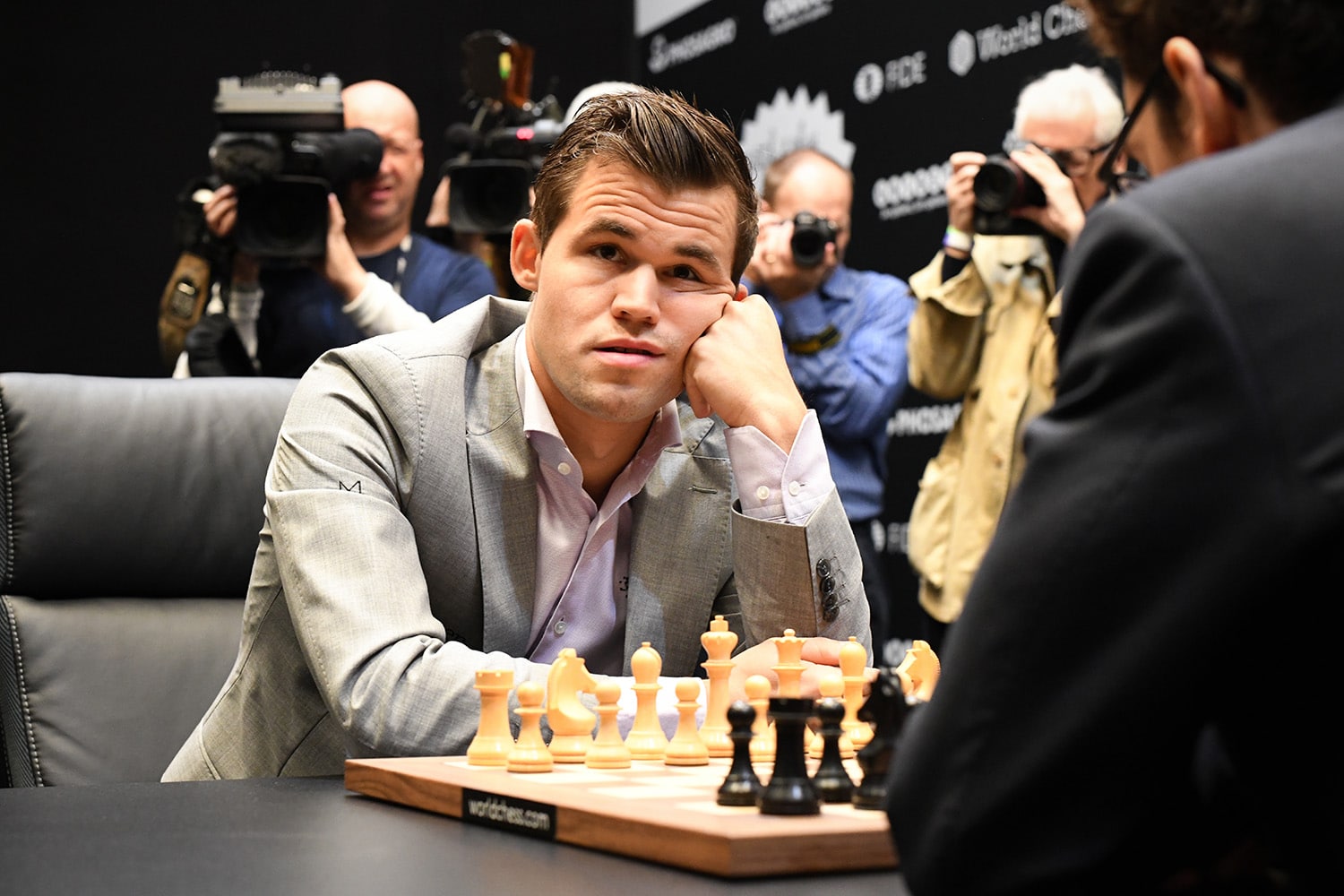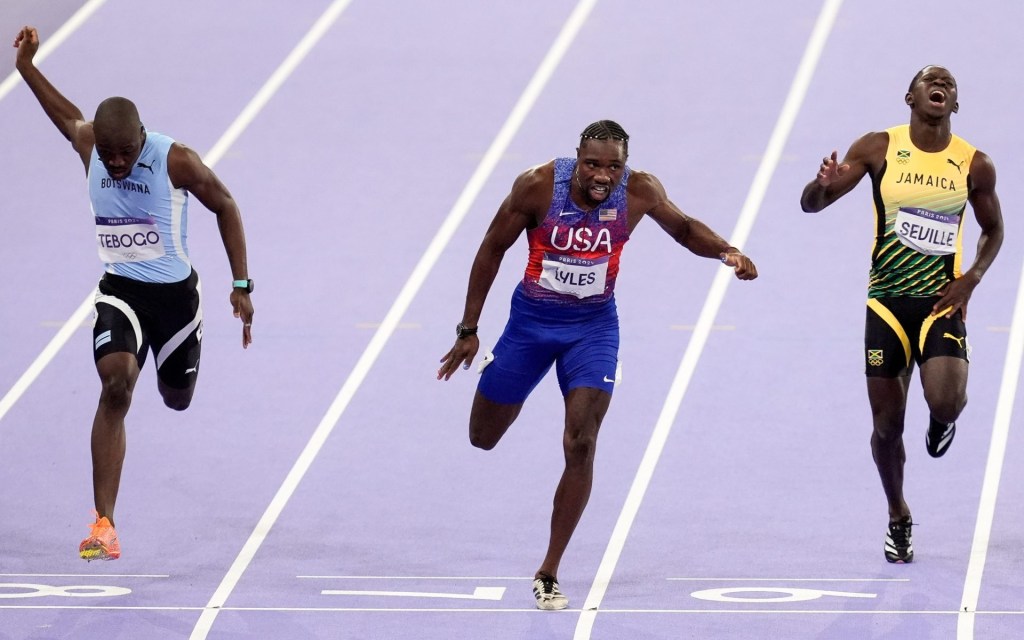Magnus Carlsen can do things on a chessboard that no one else in the world can, and on September 5, he changed the chess world with a move that no one saw coming.
It began with a single tweet.
“I’ve withdrawn from the tournament. I’ve always enjoyed playing in the @STLChessClub, and hope to be back in the future,” the world champion wrote. Those words were accompanied by a well-known video of soccer coach José Mourinho saying, “If I speak, I am in big trouble.”
While Carlsen didn’t speak publicly for three weeks, his implication was clear: He believed that when 19-year-old grandmaster Hans Niemann beat him the day before at the prestigious Sinquefield Cup, ending Carlsen’s undefeated streak in classical chess at 53 games, that he had cheated with computer assistance.
As good as Carlsen is — and he’s probably the best in human history — he’s no match for Stockfish and other chess computers, commonly referred to as “chess engines,” which can calculate dozens of moves into the future. It’s unclear if and how Niemann could have received recommendations from an assistant watching the live streamed games – players cannot have phones or other communication devices on them while they play – but if he had some kind of concealed device, beating the world champion would be easy enough.
After Carlsen’s withdrawal, the Sinquefield Cup introduced extra security measures for subsequent rounds, namely a 15-minute delay between the games and the livestream broadcast.
While players were already routinely wanded with a metal detector on entry, Niemann, was subject to an especially deliberate check, which took a minute-and-a-half.
Niemann sat for routine post-game interviews after his match against Carlsen and the following one, a draw against fellow 19-year-old grandmaster Alireza Firouzja. Following both, he was criticized by other grandmasters for missing key aspects of the games he had just played, suggesting to some that he hadn’t really been thinking about the moves he made. Carlsen later claimed that Niemann didn’t seem to be focusing very hard at key moments.
Still, no one has found conclusive evidence that he cheated, and Niemann, while admitting to isolated incidents of cheating in online games, maintains that he has never cheated in an in-person match.
Pressure Rising
Carlsen’s decision — the first time he had ever dropped out of a tournament that he had already started — resulted from years of rising stakes in the chess world and growing mistrust with this particular opponent.
This centuries-old game is seeing unprecedented numbers of players and the biggest prize pools in history. Twitch and other live platforms present a new revenue stream, particularly for young stars like Niemann.
- Chess.com’s total cumulative users doubled from 2016 to 2019, hitting 29.7 million.
- Its user base surged to 48.5 million in 2020 — which was largely attributable to the pandemic — and then rose a similar amount to 77.4 million in 2021, with an assist from the hit Netflix show, “The Queen’s Gambit.”
- By November of this year, the site had over 96 million registered users and 30 million monthly active users.
- Lichess, another popular site, hosted 44 million games in February 2020 and surged to 73.2 million two months later. The site has held those gains and hosted at least 86 million games each month since December 2020.
With more people interested in playing, watching, and improving at the game, there’s more to gain from making a name in chess.
Fair Play
The major online chess platforms make huge investments in catching cheaters.
“Seventy percent of the bans [from the site] are automated,” Chess.com CEO Erik Allebest told me. “If somebody’s playing blitz [in which players typically have three to five minutes to think during their moves for the entire game] better than Magnus Carlsen plays in classical chess [in which each player gets several hours], you know, there’s a problem.”
Algorithms can easily root out players who are simply doing what a chess engine recommends, and strong players can often sniff out cheaters just from the strength and style of their play. Since the start of 2021, Chess.com has closed roughly 18,000 to 35,000 accounts for cheating each month. The site has banned Niemann in the past, and more than 100 other grandmasters, many of whom were allowed to come back after admitting to cheating.
“Cheat detection is far and away the number one investment of man hours in Lichess, and I would bet the other servers use a similarly large amount of resources,” said Lichess community organizer Chris Callahan.
Crime and Punishment
The room to navigate for cheaters gets a little larger when one considers that both Chess.com and Lichess are terrified of accusing someone innocent.
“You don’t want to be wrong even one in a thousand times,” said Allebest.
“The consequences for famous players are clear,” said Callahan. “They stop getting invitations to tournaments, their colleagues look at them as cheaters, it stops all these professional possibilities. They’re going to have the crimson letter on their jacket for the rest of their life. But even amateur players suffer consequences because they have friends, they have connections in the real world.”
Because of the huge numbers of games being monitored — over 400 million per month on Chess.com — a tiny imperfection in the detection system could result in thousands of innocent players getting flagged.
That leads to the question of what a chess platform does when it identifies a cheater.
- Both Chess.com and Lichess have taken the approach of banning players privately.
- While Lichess permanently closes those accounts, Chess.com allows players to return under certain conditions.
Chess.com has always handled incidents of cheating privately, they are considering adjustments to that policy.
“We may internally decide to be more public about that stuff going forward,” said Allebest, while maintaining that the company will keep its options open.
Poker Face
The issue is also a live one in the world of poker, which went through a similar scandal in September in which a revered player, Garrett Adelstein, accused poker newcomer Robbi Jade Lew of cheating in an individual hand in which she won $269,000, perhaps through receiving information about other players’ cards from a third-party with access to the game’s live stream.
While poker professional Bart Hanson is 50-50 on whether Lew did in fact cheat, he said that computer assistance is a real threat in online poker.
“You almost can’t play nowadays online for any serious money,” said Hanson, due to programs that can provide optimal strategies in real-time. He added that online poker is illegal in most U.S. states and that the offshore sites people use “have no interest in really cracking down on this stuff.”
Some players simply use bots to play for them.
Hanson said that direct cheating in casinos is generally not much of a concern, but collusion, in which two players adjust their strategy so that they both get an edge against the rest of the table, can be a factor. Even murkier is the issue of staking, in which players spread their risk by buying a percentage of each other’s winnings.
“Let’s say I have a 50% [stake] in you [in a tournament],” Hanson said, “and we both make the final table. Shouldn’t I have to divulge that to everybody at the table? Won’t that affect the way that I play? But it’s one of these things that’s almost impossible to enforce. All these deals are somewhat secret.”
Fair or Foul?
Chess.com just wrapped up its first Global Championship, which carried a $1 million prize pool. The company hired security professionals who do “embassy sweeps and boardrooms,” per Allebest. “If there’s a device on the body, they’ll find it.”
Niemann, however, was disinvited, following the accusation by Carlsen. It was an awkward move for Chess.com, given that the company acquired Carlsen’s Play Magnus venture for $82.9 million in August, but it was one that Allebest felt was justified, especially given that the site had caught Niemann cheating multiple times online.
“We were days away from having our biggest prize money event in history, and Magnus did the biggest, loudest, most unprecedented thing in chess history to say something,” he explained. Given the site’s history with Niemann and potential concerns from other players, “I think it’s understandable that we just hit the reset button.”
Neither cheating case is clear cut, but both have shined a light on an awkward truth in both chess and poker: It’s the greedy cheaters that get caught.
“If I knew everyone’s cards, I can guarantee that you wouldn’t catch me cheating, because I would intentionally make mistakes,” said Hanson. “I would only need to make a few decisions that are 50-50 the right way each session to be a huge winner.”
Similarly in chess, there is broad consensus that it is nearly impossible to catch someone who limits computer assistance to a small percentage of games and only a few moves in those games.
“Unless you see them do it, there’s no way,” said Allebest.
Ready for Primetime
The Chess.com Global Championship, a rapid-style event in which players get 10 minutes to make their moves, highlighted both the top chess talent in the world and some of its most notable commentators, with the company recruiting many of the most popular chess streamers to provide live analysis.
Chess.com is investing in the game to try to turn chess players into chess fans. Part of that means leaning into faster formats, which tend to be more exciting for viewers and players.
“Let’s get chess on an ESPN sub-channel,” said Allebest. “Let’s get chess in sports bars.” Live streamed tournaments are currently shown on sites such as Chess.com and Chess24.com, or platforms such as YouTube.
He mentioned the poker pocket cam that shows players’ cards as the innovation that made the game an accessible television product.
“What’s our pocket cam? It’s not just the eval bar [which shows the computer assessment of who is winning]. We have a lot of cool things coming.”
That will involve weaving the stories of the players, their abilities, and rivalries into narratives that make an ancient game into high drama. This time, preferably without the scandal.



![[Subscription Customers Only] Jul 13, 2025; East Rutherford, New Jersey, USA; Chelsea FC midfielder Cole Palmer (10) celebrates winning the final of the 2025 FIFA Club World Cup at MetLife Stadium](https://frontofficesports.com/wp-content/uploads/2026/02/USATSI_26636703-scaled-e1770932227605.jpg?quality=100&w=1024)













